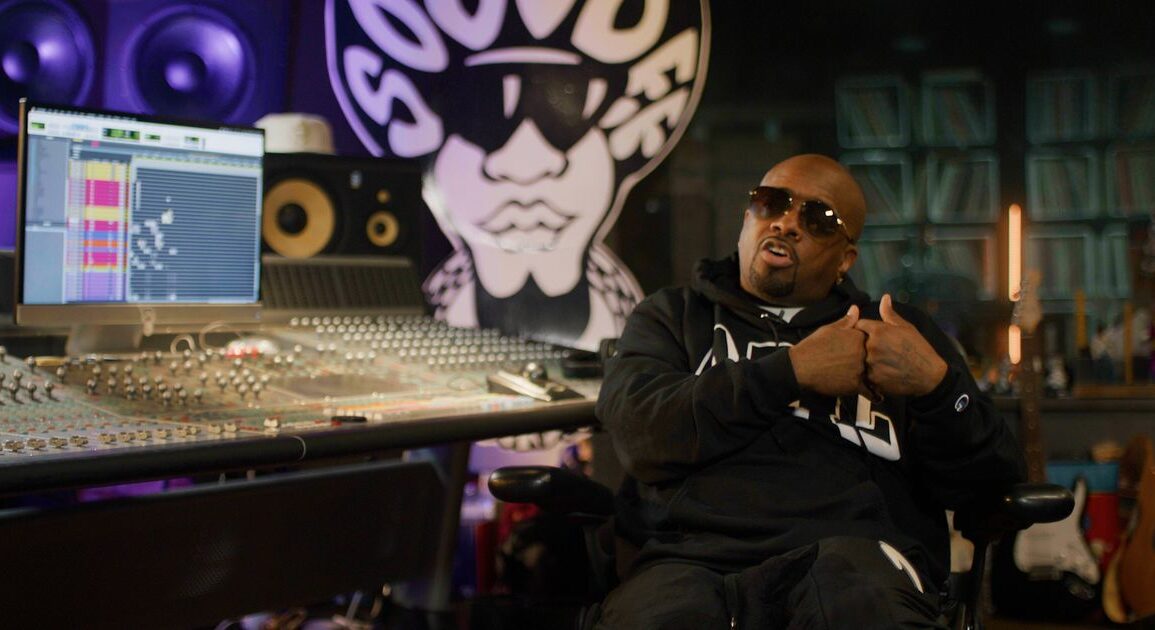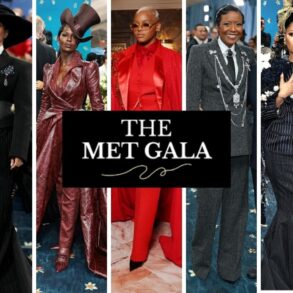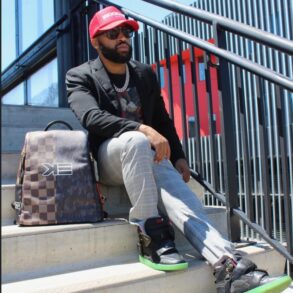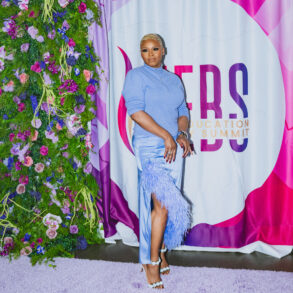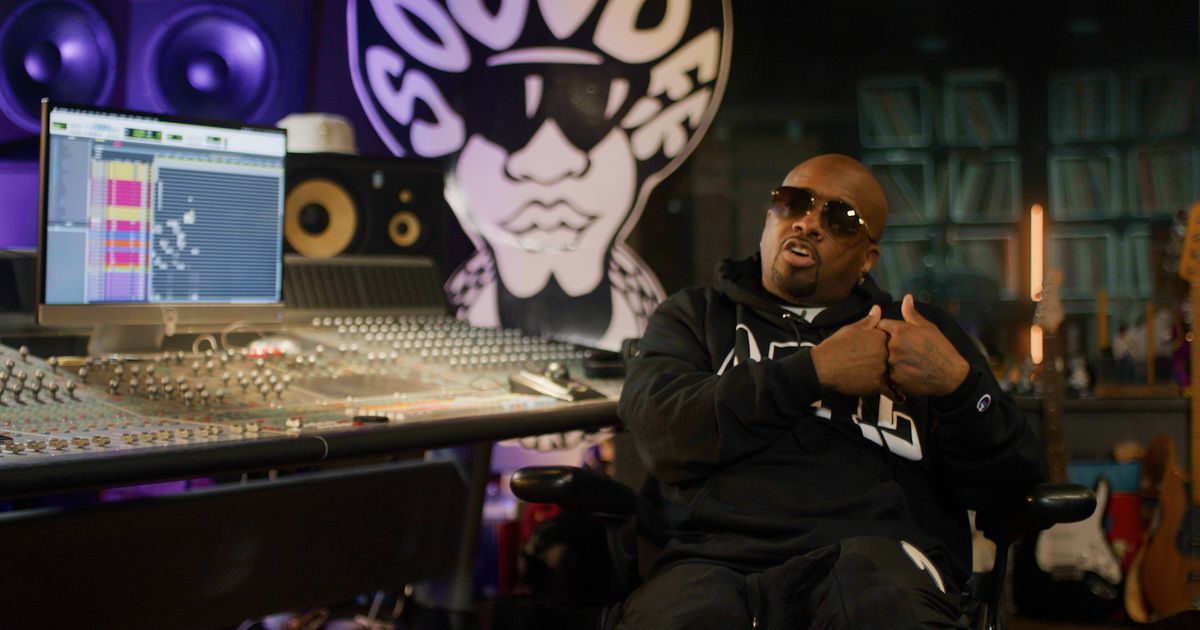
That shot the beloved OutKast member fired in front of the biased crowd almost three decades ago still holds true and is the basis for the Atlanta Journal-Constitution venturing into films. The newspaper’s debut feature-length documentary, “The South Got Something to Say,” chronicles the evolution of Atlanta’s journey to become a dominant force in both popular music and culture while the city experiences its own growth and development.
Directed by brothers Ryon and Tyson A. Horne and written and produced by reporters DeAsia Paige and Ernie Suggs, “The South Got Something to Say” is a 90-minute cruise around the spaghetti junction that celebrates and acknowledges some of the recording artists, producers (Jermaine Dupri, Dallas Austin, Zaytoven, Organized Noize), politicians (Atlanta mayor Andre Dickens, former mayors Andrew Young, Kasim Reed and Keisha Lance Bottoms), music executives (Shanti Das), journalists (Sonia Murray, Amir Shaw, Jewel Wicker), visual artists (Fahamu Pecou) and influencers that helped shift the bass-heavy, 808-savvy soundscape that became synonymous with the music. The movie produced under the AJC’s new production arm, AJC Films, premiered at Center Stage Theater on Thursday night before an enthusiastic packed house.
Credit: Lauren Hubbard
Credit: Lauren Hubbard
“This is beyond understanding,” Ryon Horne, the AJC’s Emmy-winning visual journalist, said. “This is really an incredible dream come true for me. To be trusted to tell this story is an honor and with my brothers is even more of an honor.”
Opening with Andre 3000′s timid acceptance speech, “The South Got Something to Say” features the Horne brothers incorporating VHS-styled home movie aesthetics over the newspaper’s vast archives, music video clips, high school yearbook photos, old show posters, and aerial views of the city. The duo digs in the crates and scratches the surfaces for hip-hop’s humble beginnings on the East Coast in 1973, the same year Atlanta elected its first Black mayor, Maynard Jackson, before taking jump cuts across I-20 and I-285 and into the skating rinks, talent shows, churches and strip clubs to help the city promote its regional sounds.
“Atlanta influences everything, and hip-hop has been part of the soundtrack of our very lives,” said U.S. Sen. Raphael Warnock, who makes a cameo in the documentary. “Rappers, much like preachers, tell our stories. They’re urban griots in ways that call ourselves to consciousness. It’s a celebration of people who were oppressed but refused to give in to that oppression.”
Credit: Lauren Hubbard
Credit: Lauren Hubbard
The film also shines a light on the city’s pioneers who laid the groundwork for hip-hop following the paranoia from the Atlanta child murders. Edwin “Mojo,” Lyons released the first ever rap record, “Battmann. Let Mo-Jo Handle It” in 1982, while MC Shy D became the first solo act to get signed nationally in the late 1980s.
The all-female trio Silk Tymes Leather, who was produced by a young Jermaine Dupri, was the first ever Atlanta rap group signed to a major label in 1989. Promoter Ricky Walker of College Park, was responsible for Fresh Fest, the first ever national tour to feature hip-hop artists as headliners, while the Jack the Rapper Convention attracted some of the biggest names in hip-hop. Pre-OutKast, Arrested Development took its rural surroundings and Afrocentric views all the way to the Grammys stage in 1993.
“At its heart, the film is a story about Atlanta, and you can’t tell the story without hip-hop,” said AJC President and Publisher Andrew Morse. “We’re committed to meeting people where they are in their lives.”
Credit: AJC staff photos
Credit: AJC staff photos
“This film gave everybody their flowers,” adds veteran radio personality Ryan Cameron during a post-screening panel. “We’re not trying to fit in with nobody. Everybody in Atlanta has been about that life. We’ve seen culture vultures try to come in and do something, but this is something that we could all be proud of.”
“The South Got Something to Say” goes outside of highlighting the soundtrack to acknowledge other parts of hip-hop culture with dances like the “yeek” and visual artists like Miya Bailey and Pecou. The film doesn’t shy away from how rappers like T.I. and Jeezy used their lyrics and sound to lay the groundwork for “trap music,” which depicts the grimy nature of the drug game and inner city communities they come from, years before Young Thug was indicted on racketeering and gang activity charges.
“The South Got Something to Say” ends on a high note showcasing the next generation of artists like Earthgang, Lil Yachty and Baby Tate, along with showing how the music set the pace for fashion, film, television and business.
Cameron believes “The South Got Something to Say” has potential for another installment. “So many things were left out, so you gotta do a part two,” he said.
This post was originally published on this site be sure to check out more of their content.




